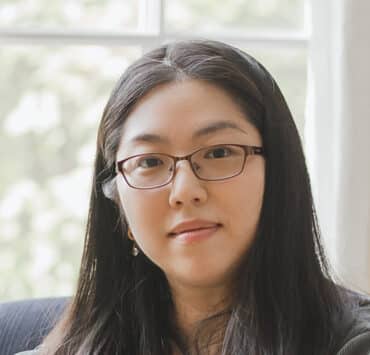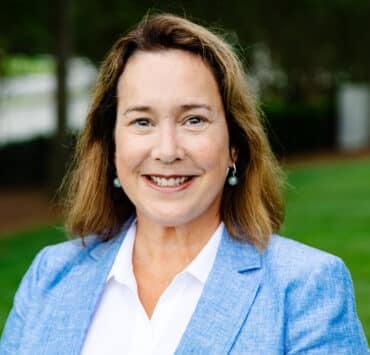Among its challenges, the COVID-19 pandemic exacerbated mental health concerns for many people across the country and around the globe. However, it also brought conversations around mental health and well-being to the forefront, catalyzing a shift in the way we approach care. “The pandemic really opened people’s eyes and made it OK to talk about mental health issues,” explains Angela Oakley, vice president and chief financial officer of WellPower, the Colorado-based community behavioral health organization formerly known as the Mental Health Center of Denver.
At WellPower, Oakley says, the approach to addressing those issues had begun to change long before the onset of the pandemic. “We have always been a very forward-thinking organization, so we had a couple of key initiatives well underway that timed out perfectly with the pandemic,” she says. “It wasn’t that these were brand-new ideas for us; it’s just that they came to fruition at a time when they were really necessary.”
In addition to the mental health landscape at large, Oakley has had a chance to witness the evolution of the nonprofit itself over her six years at the organization. From its recent rebranding (it was previously known as the Mental Health Center of Denver) to its introduction of innovative mental health programs, WellPower has positioned itself to lead the charge when it comes to defining—and redefining—what it means to support the mental health needs of the community it serves.
“The pandemic really opened people’s eyes and made it OK to talk about mental health issues.”
Angela Oakley
When she first joined WellPower, Oakley laid important groundwork for the organization to thrive. She focused on putting an effective team in place and demystifying organization financials, an endeavor to which she has remained committed even as her responsibilities have broadened. “My goal is to build the business acumen throughout the organization so that people really understand the financials in a way that’s different,” she says. “I love being part of conversations where people explain how the financials work in their own words.”
Although financial oversight is still a large part of her role, Angela Oakley now spends an increasing amount of time collaborating with community leaders in Denver and the rest of Colorado on solutions to the area’s biggest problems in the mental health arena. “One of the things that WellPower has been very involved in—with the community, with the state, with the city—is how we can be part of the solution to get the right care to folks, so that we can ultimately try to keep people out of the jail-ER cycle that comes from there being nowhere else to go,” she says.
To that end, WellPower opened its Behavioral Health Solutions Center in May 2021. The facility offers crisis triage and stabilization, as well as transitional housing services. “It’s a first-responder drop-off location for individuals in the community who are in a behavioral health crisis. Previously, first responders could take people to jail or to the hospital; they didn’t have another alternative. This gives them that alternative,” Oakley elaborates.
“Previously, first responders could take people to jail or to the hospital; they didn’t have another alternative. This [center] gives them that alternative.”
Angela Oakley
Angela Oakley cites WellPower’s Sanderson Apartments, a permanent supportive housing project, as another example of how the organization is creating alternatives to prison or hospitalization in Denver. “We are heavily involved in helping the unhoused population and trying to end homelessness,” she says. “This is a place where folks can come and live for as long as they need it. Many people have been able to get their behavioral health issues under control, work toward a job, and ultimately move out and be on their own.”
The Sanderson Apartments comprise sixty units, all open to unhoused persons with criminal records. But, despite the program’s positive impact, Oakley recognizes it as just one step toward helping the many people in need. “It’s going to take all of these creative types of solutions for change to happen,” she says. “That’s what I really appreciate about WellPower: we’re not afraid to dabble in a lot of different approaches at the same time.”
For instance, two other WellPower initiatives from the past few years—the Support Team Assisted Response (STAR) and Co-Responder programs—seek to help individuals in crisis out in the community. Whereas the Co-Responder program pairs mental health workers with police officers, STAR has made it possible to bypass police involvement altogether in many situations.
“People call 911 for a variety of reasons, and not all responses need an armed police officer.”
Angela Oakley
“People call 911 for a variety of reasons, and not all responses need a police officer,” Oakley notes. “STAR is a mobile crisis unit staffed by a mental health worker from WellPower and a paramedic from Denver Health, which is one of the top hospital systems in the city of Denver. The intent of STAR is to send the right response to people in crisis. Together, we respond to many of the 911 calls about mental health, substance use, homelessness, and poverty.”
Both programs signal a dramatic departure from traditional responses to mental health emergencies. That said, Angela Oakley emphasizes that WellPower’s role in the community extends beyond crisis support—a sentiment the organization’s rebranding reflects. “Our previous name, Mental Health Center of Denver, was sometimes limiting to folks,” she says. “Maybe ‘Denver’ was limiting, or maybe ‘mental health’ was limiting. Our new name speaks to our range of services and our belief that improving well-being strengthens people and powers our community.”
WellPower strives to reinforce the connection between well-being and mental health internally as well, through its programs for employees. Notably, the organization established a “living wage,” under which the lowest annual salary for a full-time employee in any role is $50,000. Per Oakley, this move was a way to take a stand on promoting financial well-being among workers in the emotionally taxing field of mental health.
As she looks to the future, Angela Oakley is confident in WellPower’s ability to not only further expand its offerings but also inspire widespread change in the process. “We want to continue pioneering best-in-the-nation programs and, ultimately, improve access to care,” she says. “And our models do not have to be just ours to own. We don’t shy away from folks asking us how we did something, and it would be really fantastic to see more programs like ours throughout the state and throughout the country.”


